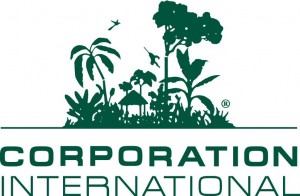
Following my article on the Team Earth corporate greenwash, I was contacted by a reader – LS – who was keen for me to publish an exposé on the Rainforest Alliance, the corporate-led organisation (sorry, NGO) who’s logo adorns the jars, packets and cups of a great many comsumer products, produced by a great many less than savoury corporations. Think Chiquita (formerly United Fruit), Nestlé, Kraft, Unilever and Coca Cola, and you get an idea of how selective the Rainforest Alliance are in allowing the certification of products.
The following article was written in August 2009 by Samantha Madell, and is available (with pictures) by following this link:
Over the years, many journalists and bloggers have portrayed Rainforest Alliance certification as being equivalent to (or even better than) organic and Fairtrade certification. Unfortunately, this simply isn’t the case.
In truth, the Rainforest Alliance certification standards contain none of the best aspects of either organic or Fairtrade certification. (And, as has been discussed quite extensively in this thread, organic and Fairtrade certification programs are, themselves, far from perfect).
Below, I will address the following issues in more detail:
1) The Rainforest Alliance’s standards are weak, to the point of being meaningless.
2) The Rainforest Alliance’s standards are poorly enforced.
3) By poorly enforcing weak standards, the Rainforest Alliance is able to provide buyers and consumers with an abundance of cheap, “certified” products. This, in turn, has enabled the Rainforest Alliance to gain an unfair advantage over other (more expensive) certification programs which have much stronger standards.
4) the Rainforest Alliance has encouraged consumers to believe that ethical production is no more expensive than non-ethical production. The stark reality is this: ethical production is always more expensive than an exploitative method of production.
====================
1) The Rainforest Alliance’s standards are weak, to the point of being meaningless.
****
Note: Certification standards sometimes change. This blog post relates specifically to the following certification standards, both dated April 2009, and both current at the time of writing:
Rainforest Alliance Sustainable Agriculture Standard (April 2009)
Rainforest Alliance Farm Certification Policy (April 2009)
These documents can be accessed via www.rainforest-alliance.org
****
How does Rainforest Alliance certification actually compare with Fairtrade and organic certification? The two most obvious points for comparison are pesticide usage, and the payment of premiums to growers. Then there are more general issues such as health care, education, rainforest protection, biodiversity, and sustainability. From what I can gather, the Rainforest Alliance doesn’t do much in any of these areas:
PESTICIDES
Organic certification disallows the use of synthetic pesticides. In stark contrast, the Rainforest Alliance allows the use of a wide range of pesticides. If a pesticide can be legally used in the USA and the EU, then it can be used by Rainforest Alliance certified growers.
As Bill Alpert points out in his article “Do-Gooders Who Could Do Better”, the Rainforest Alliance allows the use of pesticides that can kill the tree frog shown in its logo.
Furthermore, as Gallagher and McWhirter wrote more than 10 years ago, in “Bananas, Bulldozers and Bullets – Chiquita Banana”:
Chiquita’s use of pesticides degrades and destroys rainforests and poisons workers, sometimes fatally. Chiquita executives have found that it is far cheaper to pay willing “environmental” organizations to apply their stamp of approval than to pay for cleaning up the problem. […] Chiquita’s primary partner in green-washing is the Rainforest Alliance
Reference: http://www.thirdworldtraveler.com/Transnational_corps/BananasBullet…
PRICES RECEIVED BY GROWERS
Organic and Fairtrade certification programs attempt to improve growers’ lives (and also reduce the use of child labor) by paying growers a set premium for their produce.
In stark contrast, the Rainforest Alliance pays no such premium. Instead, the Rainforest Alliance simply requires workers to be paid the local minimum wage. This is a meaningless standard for two reasons:
1) the local minimum wage must (by law) be paid anyway, and
2) the local minimum wage is often not enough to live on.
Nothing that I have seen in the Rainforest Alliance’s certification standards explicitly does anything to alleviate grower poverty.
Indeed, the Rainforest Alliance has been widely criticized for failing to alleviate grower poverty. In a public statement addressed to the Rainforest Alliance, the International Labor Rights Forum and the Organic Consumers Association wrote:
When cocoa farmers sell their beans in the conventional market, they routinely receive payment below the world market price which traps farmers in a cycle of poverty. As a result, they must use child labor and cut back on other expenses. If farmers are ensured a fair, living price for their beans, they are more able to institute better labor standards and provide food, health care, education and other necessary services for their families. Ensuring a fair baseline farmgate price in these conditions is not “throwing money” at a problem – it is responding to a fundamental inequality that affects farmers’ ability to implement all standards for sustainability. The price system under Fairtrade certification is thus one of that system’s major strengths.
Reference: http://www.laborrights.org/sites/default/files/publications-and-res…
ACCESS TO EDUCATION, HEALTH CARE, AND CLEAN WATER
The Rainforest Alliance’s website states that families on Rainforest Alliance-certified farms and forests “have access to education and health care”.
This is a profoundly misleading statement, which implies that Rainforest Alliance certification somehow brings about access to these services. It does not. In fact, farmers cannot obtain Rainforest Alliance certification unless and until their workers have access to education and health care. Nothing that I have seen in the Rainforest Alliance’s standards in any way facilitates access to these services.
Health care, education, and clean water cost money. However, while farmers must pay to obtain Rainforest Alliance certification, Rainforest Alliance certification does not, in turn, guarantee growers an increased income, nor any kind of financial premium for their products. In my opinion, this is unethical.
RAINFOREST AND SHADE TREES
Prior to October 2005, the Rainforest Alliance was actively promoting its certified cocoa as being grown “under the canopy of the rainforest”. That claim was false. (The Rainforest Alliance quietly removed that claim from their website, shortly after I made a formal complaint about what I saw with my own eyes at a Rainforest Alliance-certified plantation Ecuador in 2005) …
When I visited a Rainforest Alliance-certified cocoa plantation and fermentary in Ecuador, I saw no rainforest anywhere near the plantation. Furthermore, there were no shade trees of any description.
Perhaps most incredible of all: a large number of mature, productive cocoa trees had been cut down not long before our visit (there were ripe pods hanging from the limbless trunks). The growers told us that they cut the trees down because they had been told that they would be better off growing maracuya (passionfruit). This is clear evidence that growers simply do not receive a high enough price for Rainforest Alliance-certified cocoa.
When I came home and examined the Rainforest Alliance’s certification standards in detail, I was shocked to learn that the standards do not require a plantation to contain any shade trees, let alone rainforest.
Is this a sustainable cocoa plantation?
SUSTAINABILITY
The Rainforest Alliance routinely refers to its certified products as being “sustainably grown”, thereby implying that Rainforest Alliance certification and sustainability are synonymous. Unfortunately, the facts don’t support this claim.
For example, how can a field of felled cocoa trees (as shown above) be described as a “sustainable” cocoa plantation? Obviously, it isn’t.
However, if we suspend disbelief and assume for a moment that Rainforest Alliance certification is synonymous with sustainability – then what about the fact that a product with as little as 30% certified content can display the frog logo, and claim to be “Rainforest Alliance certified”?
Read more about the Rainforest Alliance’s highly deceptive labeling practices at Coffee and Conservation: When is 100% not 100%?
====================
2) The Rainforest Alliance’s standards are poorly enforced.
In 2005, I personally witnessed child labor at a Rainforest Alliance-certified cocoa facility in Ecuador.
The children we saw were engaged in lugging heavy sacks of wet cocoa beans around. Heavy lifting can damage growing bodies, and it is widely considered to be one of the worst forms of child labor. For example, when INTERPOL recently rescued dozens of child slaves in West Africa, they reported that the children were found working in “extreme conditions, forced to carry massive loads seriously jeopardizing their health.”
It was surprising to me that, amongst our group of Western tourists, there was a high degree of complacency about this child labor.
Several members of our group believed that the boys were family members of other adult employees, and that this made the child labor OK. Other people told me that child labor is generally OK, because (for example) working on the family farm as a child never harmed them.
I have three main problems with this complacent attitude:
1) Child labor, such as we witnessed in Ecuador, is illegal. (Anybody who truly objects to this legal protection of children might want to take the issue up with Ecuador’s law makers, or UNICEF).
2) The use of child labor, as well as being illegal, is in breach of the Rainforest Alliance’s own standards. And finally,
3) Child labor goes hand-in-hand with poverty – and Rainforest Alliance certification does nothing to actively alleviate the grinding poverty which typically leads to the use of child labor.
It is obvious to me that the Rainforest Alliance doesn’t (and probably can’t) effectively enforce its standards. Therefore, their standards are not only weak, they are actually meaningless.
I am not alone in trying to highlight this problem with the Rainforest Alliance. For example, in a study titled “Examining the Rainforest Alliance’s Agricultural Certification Robustness” (2007), Feliz Ventura concluded that “it is impossible to classify the Rainforest Alliance certification process as robust”.
Furthermore, as Justin Trauben wrote for the Organic Consumers Association in June 2009:
with the release of “Tainted Harvest: Child Labor and Obstacles to Organizing on Ecuador’s Banana Plantations”, the veil was pulled by Humans Rights Watch. The farms investigated in the article, farms certified by Rainforest Alliance, relied on child labor, violated basic labor rights and suppressed attempts at unionization. In response, Rainforest Alliance went back and re-inspected the plantations in 2003, but maintained all their certifications.
Perhaps worst of all: in 1998, when Rainforest Alliance-certified plantations were found to be in breach of the standards (specifically, by using pesticides not registered for use in the United States) the Rainforest Alliance responded – not by de-certifying the plantations, but rather by weakening their own standards!
Read more about this unbelievable behaviour here, in an article titled “Environmental group loosens pesticide standards”.
=========================
3) By poorly enforcing weak standards, the Rainforest Alliance is able to provide buyers and consumers with an abundance of cheap, “certified” products. This, in turn, has enabled the Rainforest Alliance to gain an unfair advantage over other (more expensive) certification programs which have much stronger standards.
(I would like to preface my expansion of this point by reminding readers that existing Fairtrade and organic certification programs are far from perfect. However, by numerous objective measures, Fairtrade and organic are both much stronger certification programs than Rainforest Alliance).
In 2008, global sales of Fairtrade certified products increased by 22%. That sounds like very impressive growth – until you compare that figure with the Rainforest Alliance’s sales figures:
The amount of coffee purchased from Rainforest Alliance Certified farms has increased by an average of 93 percent every year for the past five years.
In a document titled “Sustainable is Attainable” (PDF doc), the Rainforest Alliance notes that consumers want environmentally friendly products. The problem that they have identified is that many consumers “do not what to sacrifice anything when buying environmentally friendly products (price and quality)”.
The Rainforest Alliance concludes that “people want to see sustainability mainstreamed”. Their response to this knowledge is to commit to “mainstreaming sustainability!”.
The concept of “mainstreaming sustainability” seems, to me, to be a euphemism for providing an abundance of cheap food items bearing the cute (but essentially meaningless) green frog logo.
In its “Sustainable is Attainable” document, the Rainforest Alliance discusses what a great marketing opportunity the Rainforest Alliance frog logo represents. Take, for example, McDonald’s UK sales of Kraft Rainforest Alliance-certified coffee:
• Unit sales up 15%
• Coffee £ sales up 23%
Hang on a minute … the number of cups of coffee sold has increased 15% (impressive!), but the income earned from coffee sales has increased 23% (even more impressive!). To me, this sounds distinctly like concerned consumers are being gouged.
Remember that Kraft is not obliged to pay anything above the market price for Rainforest Alliance-certified coffee. You should also be aware that Kraft is one of the Rainforest Alliance’s biggest corporate sponsors: according to the Rainforest Alliance’s recent annual reports, Kraft donates an unspecified amount (between $100,000 and $999,999) to the Rainforest Alliance each year (as does Mars).
=============================
4) the Rainforest Alliance has encouraged consumers to believe that ethical production methods are dirt cheap. The stark reality is this: ethical production is more expensive than production methods which exploit people and the environment.
By providing enormous quantities of cheap agricultural products (such as cocoa, tea, coffee, and bananas), the Rainforest Alliance has led consumers to mistakenly believe that ethical production methods can be as cheap as exploitative production methods. Unfortunately, this isn’t true: decent wages and sustainable growing methods are inevitably more expensive than exploitative and non-sustainable methods of agricultural production.
=============================
What can you do?
Don’t take ethical claims at face value: educate yourself; read the relevant standards; ask questions.
Be prepared to pay more for genuinely ethical products.
How do I respond to these issues? By speaking out, and by actively avoiding all products which bear the Rainforest Alliance logo.













